Genuine elections vs participatory sham

The message from Charles Whiteley, the European Union ambassador to Bangladesh, that the EU will not send any observers to the next parliamentary election if it is not participatory appears to be intended to encourage all political parties to make the election inclusive. The EU ambassador communicated this message to the BNP, the main opposition, on Sunday when they met in Dhaka. Media reports suggest that a similar message has been passed on to the government as well. Though participation or inclusiveness of an election is an important prerequisite, can it alone make elections credible or fair? Unfortunately, the 2018 experience proved otherwise.
If a participatory election means that the maximum number of political parties and independent candidates will take part in the race, the 2018 election was truly participatory. Even most other by-elections held afterwards, including the latest six by-polls to the parliamentary seats vacated by BNP MPs, were somehow participatory. But if elections are meant for voters to participate in freely, then none of these elections would be counted as participatory, let alone credible or acceptable.
Let's recount what the EU and some other countries said about the 2018 election. According to a Reuters report following the polls, the EU statement said, "Violence has marred the election day, and significant obstacles to a level playing field remained in place throughout the process and have tainted the electoral campaign and the vote." The EU also called for "a proper examination of allegations of irregularities."
The United States said, "We are concerned that election-day irregularities prevented some people from voting, which undermined faith in the electoral process." It added that "credible reports of harassment, intimidation, and violence in the pre-election period made it difficult for many opposition candidates and their supporters to meet, hold rallies, and campaign freely."
As the election monitoring process is a long-drawn-out exercise, one may wonder whether this is a premature warning about the EU's own limitations. Similarly, questions can be raised as to why there has not been more emphasis on "genuine elections," as was the case in 2018 when the EU urged all the stakeholders to "ensure a genuine, credible, inclusive and transparent electoral process in Bangladesh." The country needs a genuine election in its true sense, not a sham exercise under the pretence of maximum participation.
Echoing similar concerns, the UK's then Minister of State for Asia and the Pacific Mark Field said he was "aware of credible accounts of obstacles, including arrests, that constrained or prevented campaigning by (the) opposition parties," and then urged "a full, credible and transparent resolution of all complaints related to the conduct of the elections."
These observations came largely on the basis of media reports and very limited access to the polling stations granted to diplomats stationed in Dhaka as most of the foreign observers, except a few from India, were not able to monitor the polls. The Asian Network for Free Elections (ANFREL), which was expected to deploy the largest number of observers, regretfully terminated their mission just a week before the polls, saying it was "due to significant delays in the accreditation approval by the Bangladesh Election Commission and visa approvals by the Ministry of Foreign Affairs." ANFREL was supported by the US and a few other nations.
Much before the ANFREL, the EU announced that they were not sending any observer team owing to a lack of preparation and resources. "Sending a credible observer mission is a very big operation. It requires a big number of observers and months of preparation. So, in budgetary terms, it's quite expensive," the then EU Ambassador in Dhaka Rensje Teerink explained to Deutsche Welle.
What makes election monitoring a challenging task was explained well to this daily by Charles Whiteley. He said there were three phases when it comes to sending election observers. First, an exploratory delegation will visit the country to assess the situation six months before the election. Then a long-term delegation will come, most probably two months ahead of the polls. Finally, another team of EU election observers will come to observe the election.
There are a number of instances when a major contending party changed its mind at the last moment on taking part in an election or boycotting it. In 1986, the Awami League broke the opposition boycott at the eleventh hour; in 2006, the party, along with its allies, announced boycott after the Election Commission declared Gen Ershad's nomination invalid. It is, therefore, an unrealistic proposition that election monitoring will be dependent on the participation of all major political parties. What prevents poll monitors from withdrawing if, at any stage, they feel that their exercise is meaningless due to foul play, or the integrity of the process is being tainted, or their own safety is at risk?
As the election monitoring process is a long-drawn-out exercise, one may wonder whether this is a premature warning about the EU's own limitations. Similarly, questions can be raised as to why there has not been more emphasis on "genuine elections," as was the case in 2018 when the EU urged all the stakeholders to "ensure a genuine, credible, inclusive and transparent electoral process in Bangladesh." The country needs a genuine election in its true sense, not a sham exercise under the pretence of maximum participation.
The term "genuine elections" is enshrined in the Universal Declaration of Human Rights. According to the Compendium of International Standards for Elections, the element of genuine elections may be understood at two levels. In the broader sense, the adjective genuine can be seen to bring in the adjacent political freedoms and rights, such as the freedom of expression, assembly, association, and movement. In the narrower sense, the element of genuine election refers to voters having a real choice between distinct political options and contestants.
It's a well-known fact that as December is the month of Christmas, the biggest religious celebration in the West, organising an observer team is a big ask for them. Therefore, it is understandable that any election in the later part of December or early January is likely to be affected by a lack of enthusiasm in monitoring on the part of Western nations. Hope our political parties and the Election Commission will keep it in mind when scheduling the general election.
Kamal Ahmed is an independent journalist. His Twitter handle is @ahmedka1

 For all latest news, follow The Daily Star's Google News channel.
For all latest news, follow The Daily Star's Google News channel. 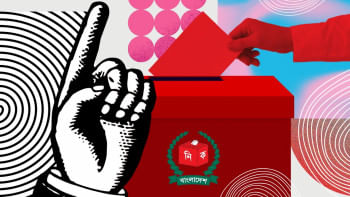
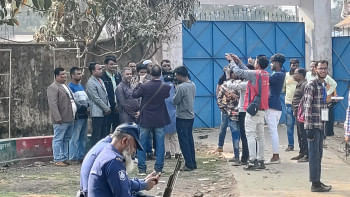


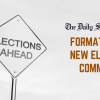
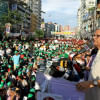

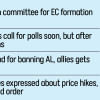


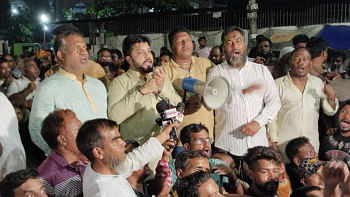
Comments